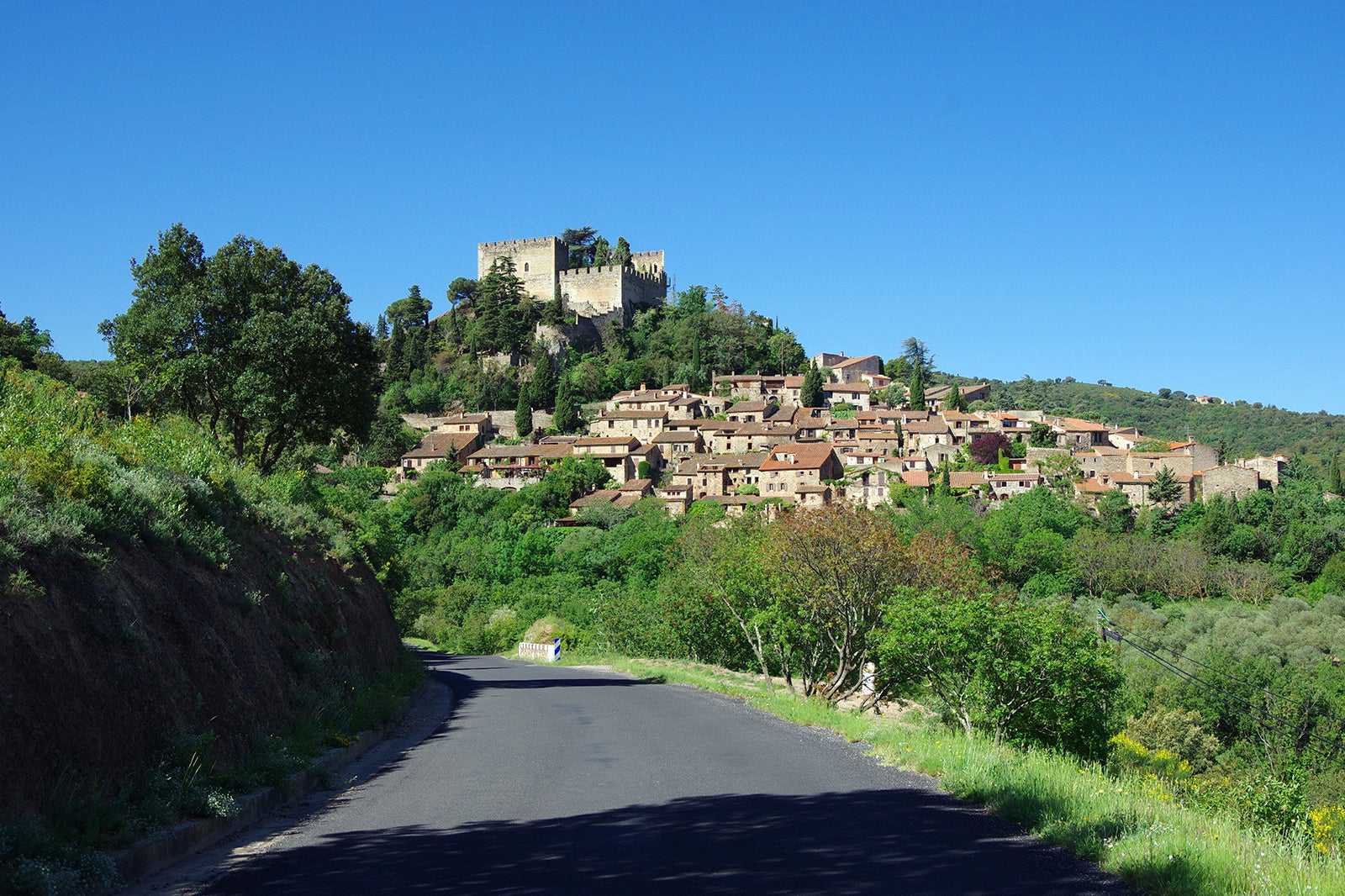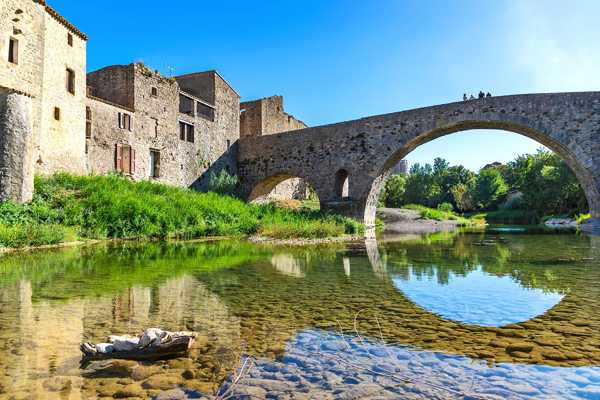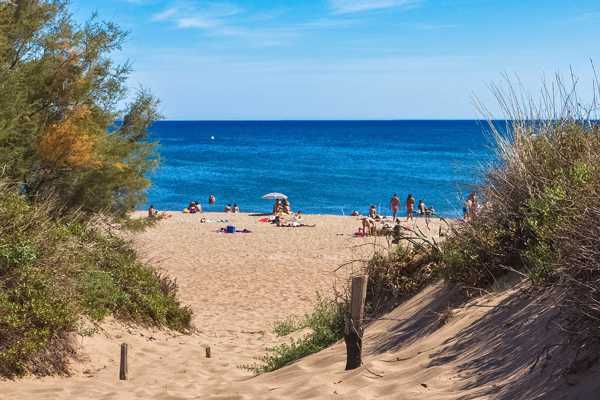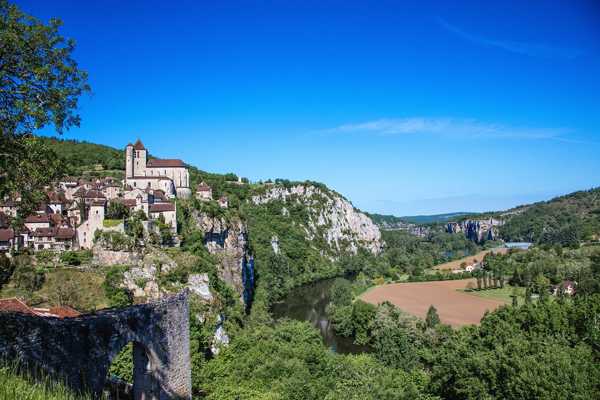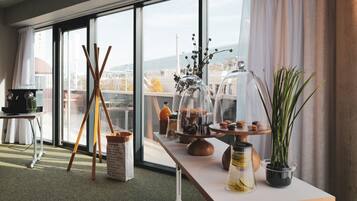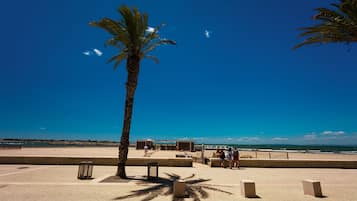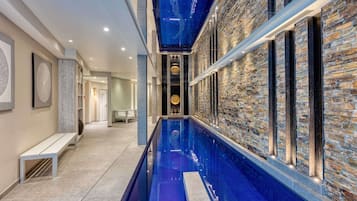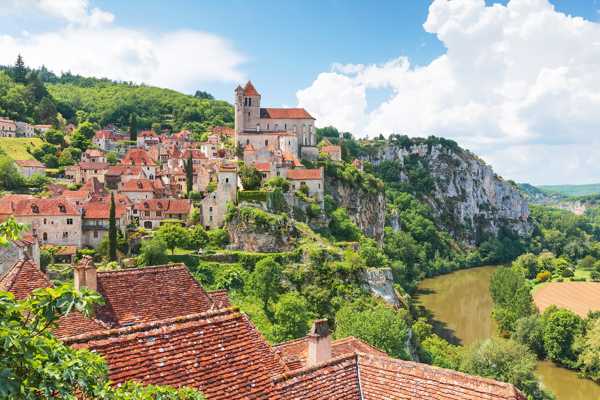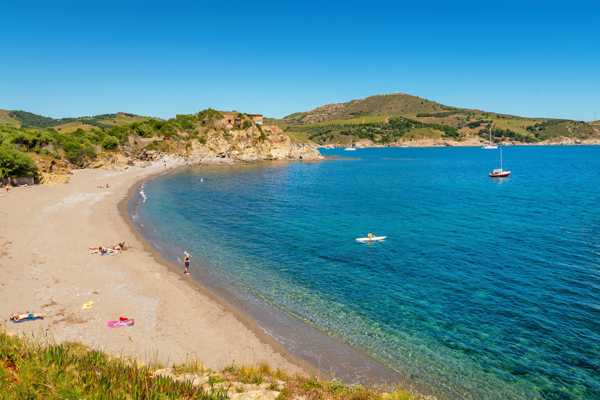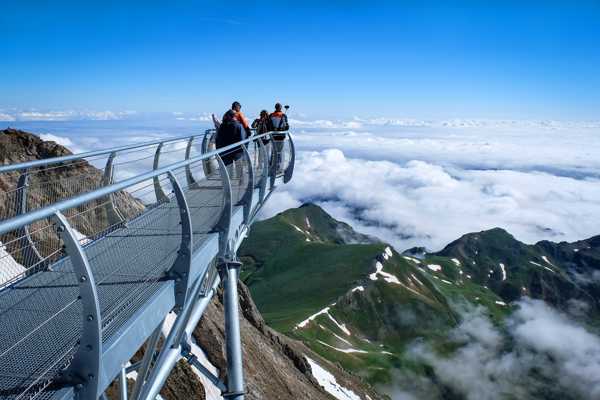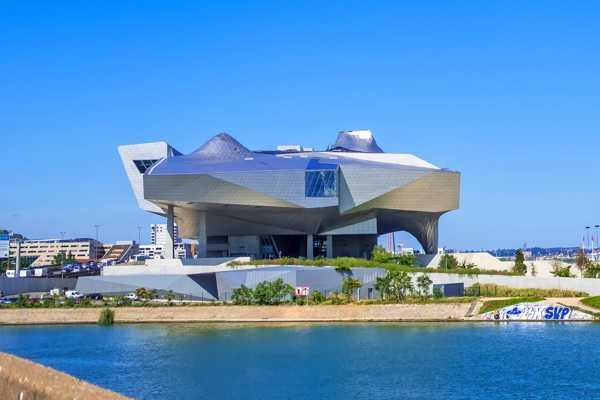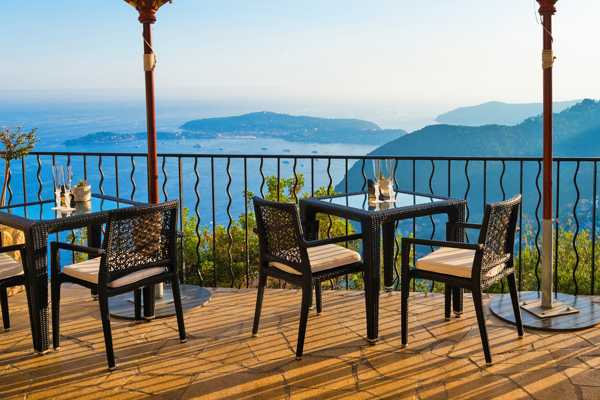The Languedoc-Roussillon region, renowned for its breathtaking beauty and picturesque villages, extends from the Cévennes region to the Mediterranean coast and as far as the Pyrenées. The beautiful countryside is dotted with charming villages. Marked by time, pastel-coloured stone buildings perch on cliffs, nestle into the rocks or remain hidden on the valley floor.
Learn about their war-torn past while strolling through their narrow streets under the sun. These villages are usually close to stunning natural sites, so you can enjoy culture and get some activity on the same holiday. Discover the most beautiful villages in Languedoc-Roussillon.
- 1
Lagrasse
A picturesque village in Corbières
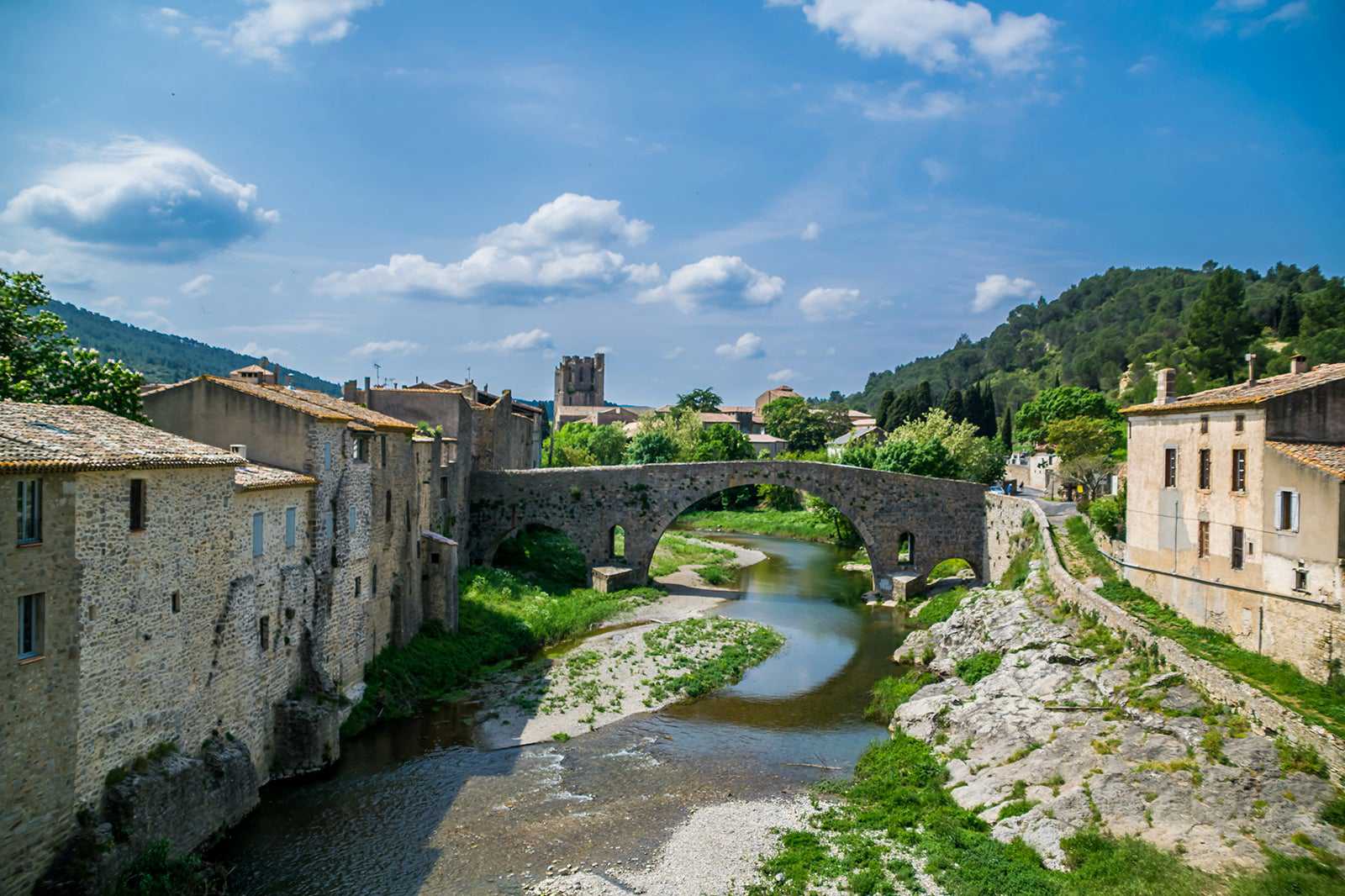
- Économique
- Histoire
- Photographie
Lagrasse is a very pretty medieval village with a 14th century market hall and picturesque stone bridge over the River Orbieu leading to its famous abbey. The stone buildings, ruined town walls and Gothic church are framed by the green hills and vineyards that are characteristic of Corbières, creating a landscape that will really make you feel you've travelled back in time.
Founded in the 8th century, the Benedictine abbey of St Mary (Sainte-Marie) was a powerful and wealthy abbey, which is reflected in its buildings. In the medieval part you can still visit the bakery, sacristy, transept, chapels and the monks' dormitory. Back in the village, you can enjoy browsing the work of local artisans in the many shops.
Carte - 2
Saint-Guilhem-le-Désert
Old stones, light and pilgrimage
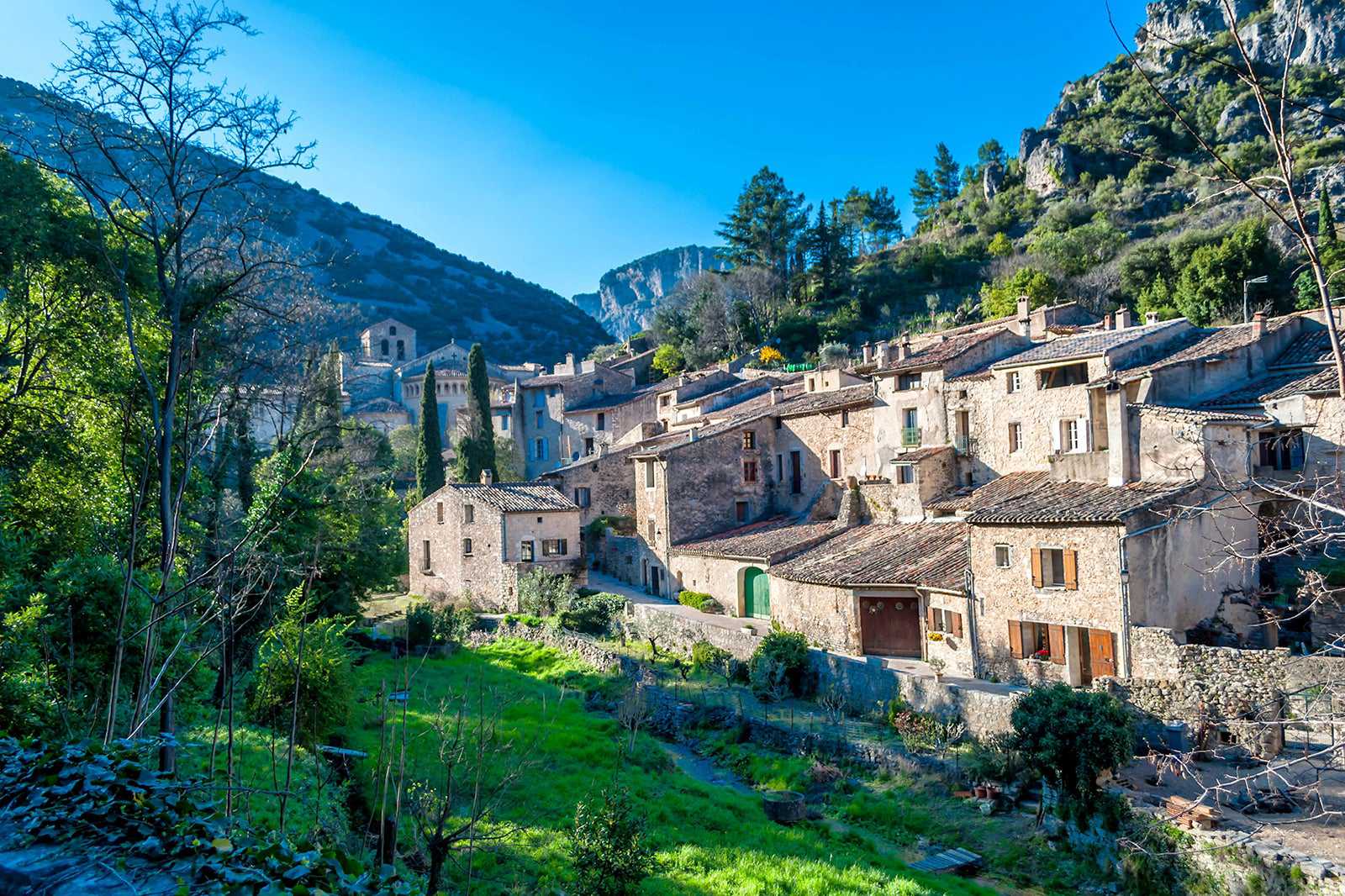
- Économique
- Histoire
- Photographie
Saint-Guilhem-le-Désert sits in the Hérault gorges. This medieval town was a stopping place on the pilgrimage route to St James of Compostella and is known for the magnificent Gellone Abbey. Under the beautiful natural light, enjoy strolling through the streets of the village, seeing the old stone houses and browsing the many little artisans' shops before entering the Romanesque Abbey church where you can see the relics of St William and the True Cross.
Don't forget to have a look at its famous eastern end, or chevet, and enjoy its serenity. And don't leave Saint-Guilhem without climbing to the top of the medieval city which gives you a fantastic view over the surrounding area.
Carte - 3
Saint-Martin-de-Londres
A typical Languedoc town
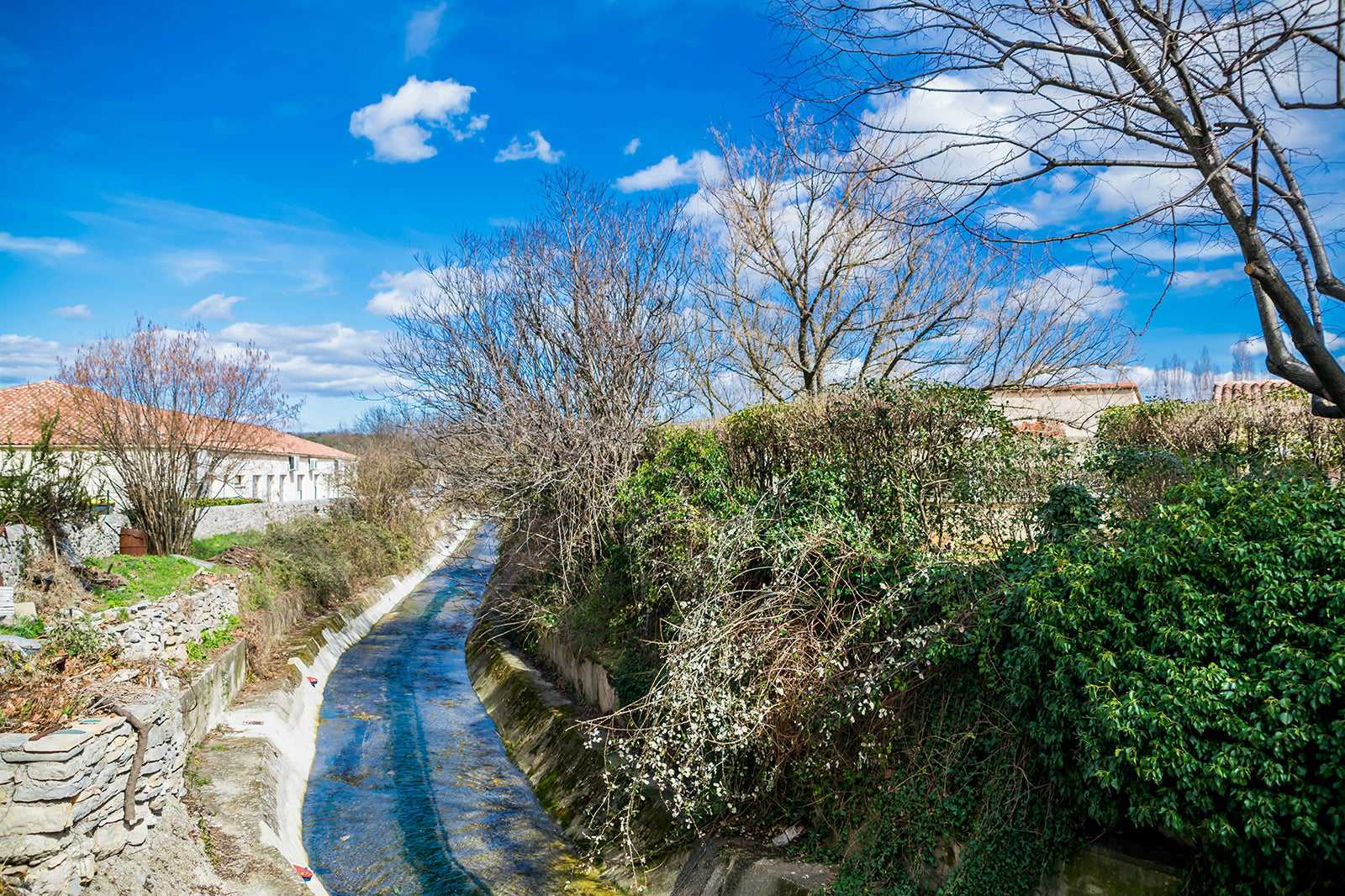
- Couples
- Familles
- Photographie
Saint-Martin-de-Londres, hidden behind its ramparts, is a charming town that displays all the skill of medieval builders. You can wander down narrow streets and through stone arcades, admiring the colourful shutters on the houses and the flowers on the balconies. But the undisputed star of this village is its church, built by Gellone Abbey and dating back to the time of Charlemagne.
One of the most famous monuments in the area is an elegant and beautifully proportioned Romanesque building. The clock tower, which still tells the time in the village, is a remnant of the town walls built during the 100 Years’ War.
Carte - 4
Castelbouc
An amazing troglodyte village
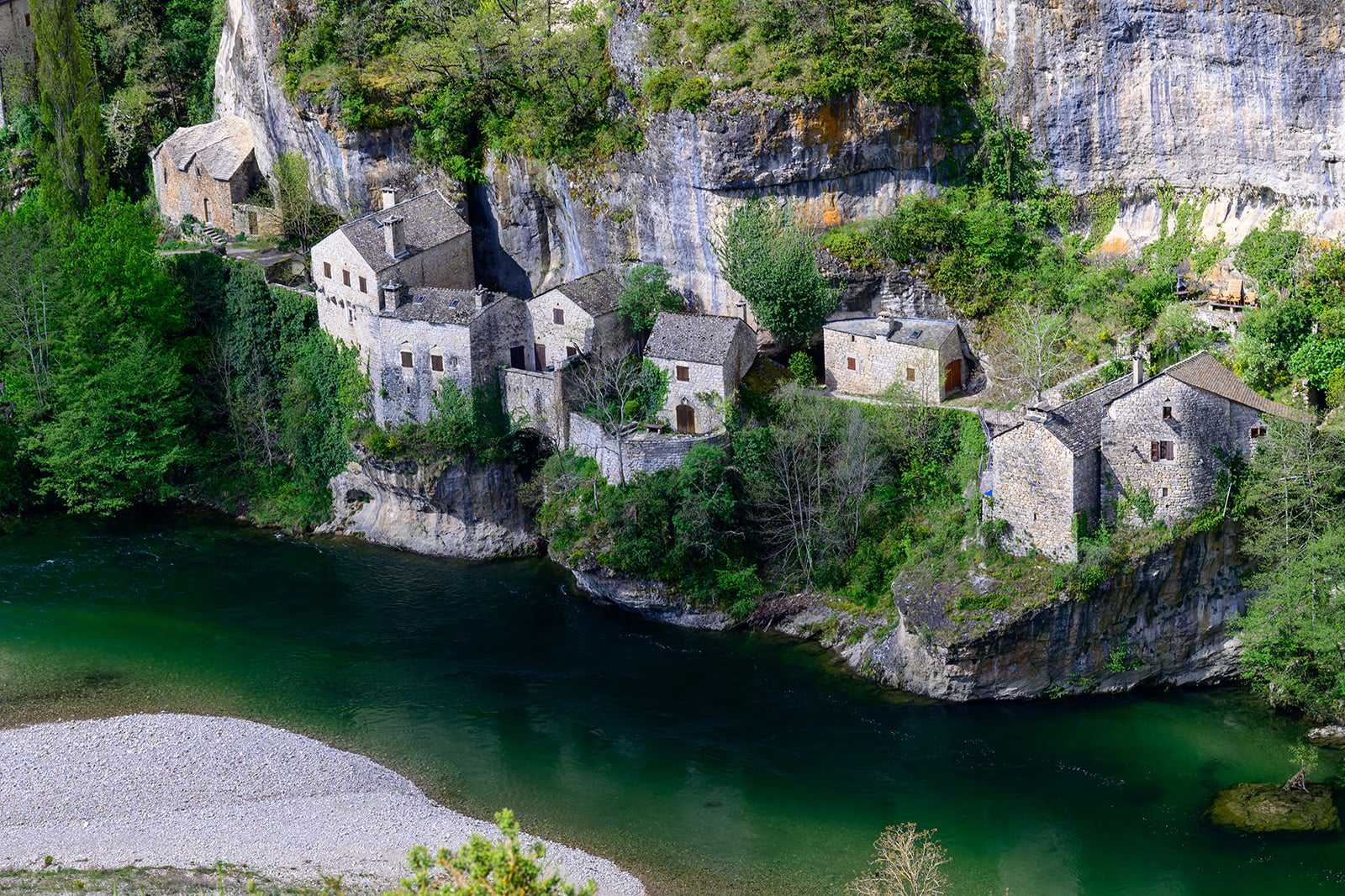
- Photographie
- Insolite
Castelbouc is a tiny yet remarkable village in the Tarn Gorge (gorges du Tarn). Accessible by a submersible bridge and overlooking the river, it consists of semi-troglodytic houses with a ruined castle high above them. Built in the Middle Ages, the castle was destroyed in 1592 during the Wars of Religion to prevent it from sheltering Protestants.
As you stroll through the narrow streets of this town clinging to the Causse Méjean cliffs, it's impossible not to feel transported back in time. The village even has a chapel built into the rock, the Chapel of St John the Baptist built in 1382. Before leaving Castelbouc, be sure to visit the charming pebble beach on the banks of the Tarn River.
Carte - 5
La Garde-Guérin
A medieval town in stunning countryside
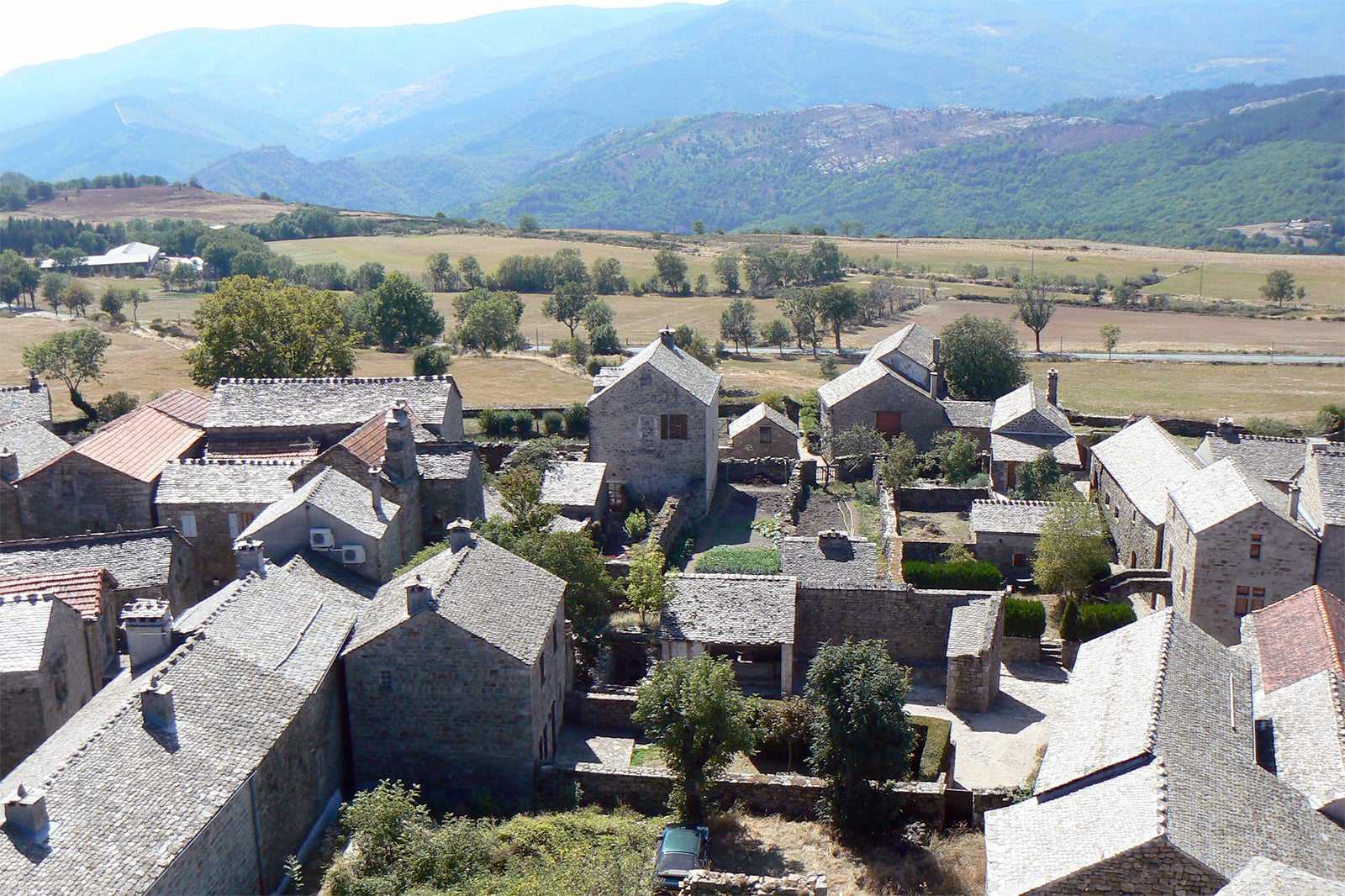
- Économique
- Histoire
- Photographie
La Garde-Guérin is a 12th century fortified village perched 860 metres above sea-level in the Chassezac gorge, surrounded by the Ardèche and Vivarnais mountains and overlooked by Mont Lozère. This town was once a strategic communication and commerce post on the Régordane Way (le chemin de Régordane) and its narrow stone streets have witnessed centuries of history.
The Romanesque church of St Michael (Église Saint-Michel), the patron of an order of knights dedicated to protecting the Régordane Way, is well worth a visit. You can also see the impressive ruins of a 16th century fort in the northeast corner. From the terrace by the watchtower, you can see a wonderful view of the countryside surrounding this remote village.
Cartephoto de Ancalagon (CC BY-SA 3.0) modifiée
- 6
Mont-Louis
The highest fortified town in France
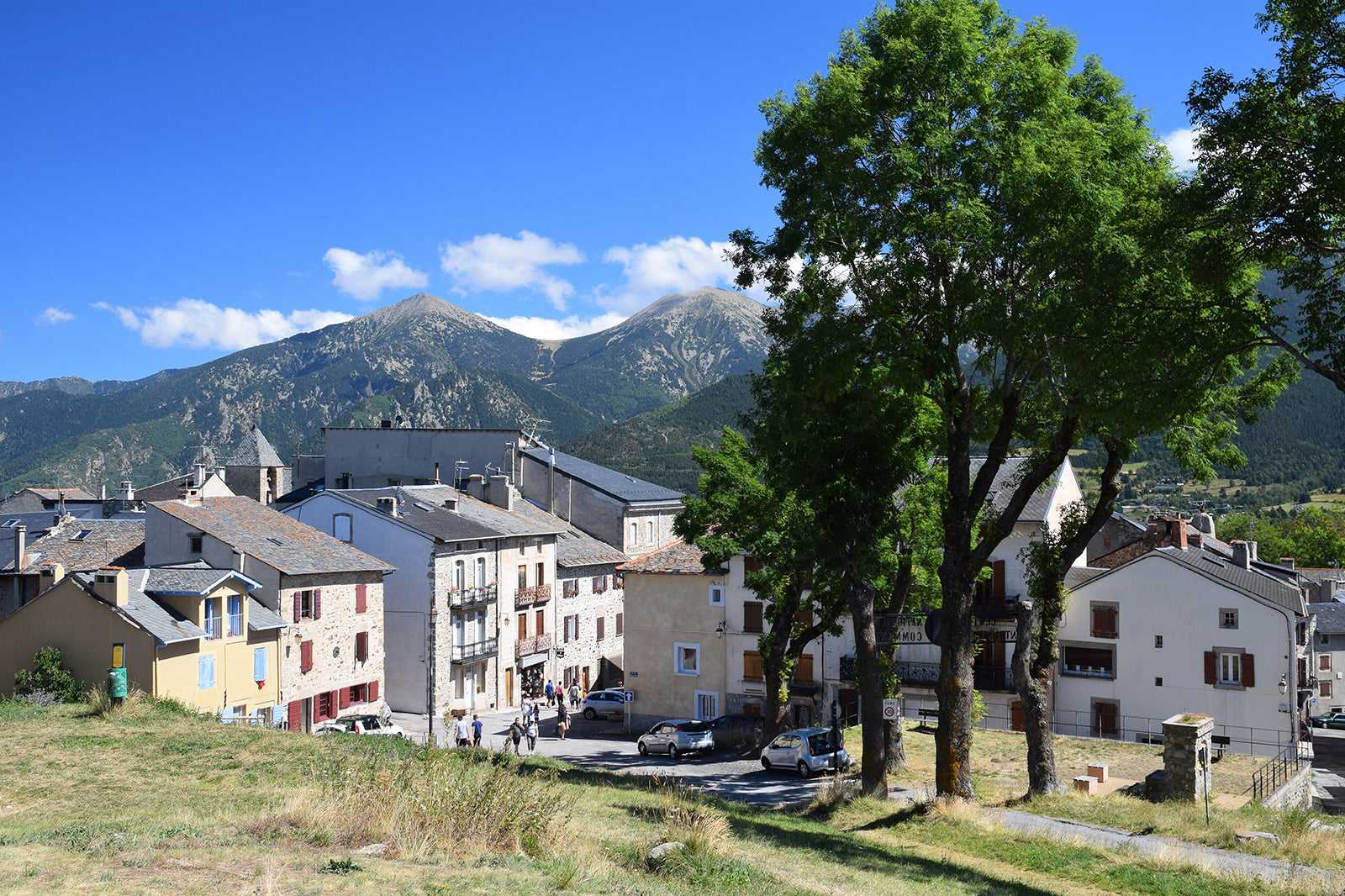
- Économique
- Photographie
- Insolite
Mont-Louis is a fortified town perched on top of a hill, created by Vauban in the 17th century to protect France’s borders from the Kingdom of Spain. Situated where the Cerdagne, Capcir and Conflent valleys meet, it’s surrounded by beautiful countryside full of lakes, rivers and greenery.
It’s called the city of the Sun King because its massive 3 km long ramparts, which today are home to the national commando training centre (Center national d’entraînement commando), were built on the order of Louis XIV. You can visit both the inside and the outside to see things like the solar oven and convict wells (le puits des forçats), cutting-edge 17th century engineering for raising drinking water to the surface.
Carte - 7
Prats-de-Mollo-la-Preste
A town that protects its tradition
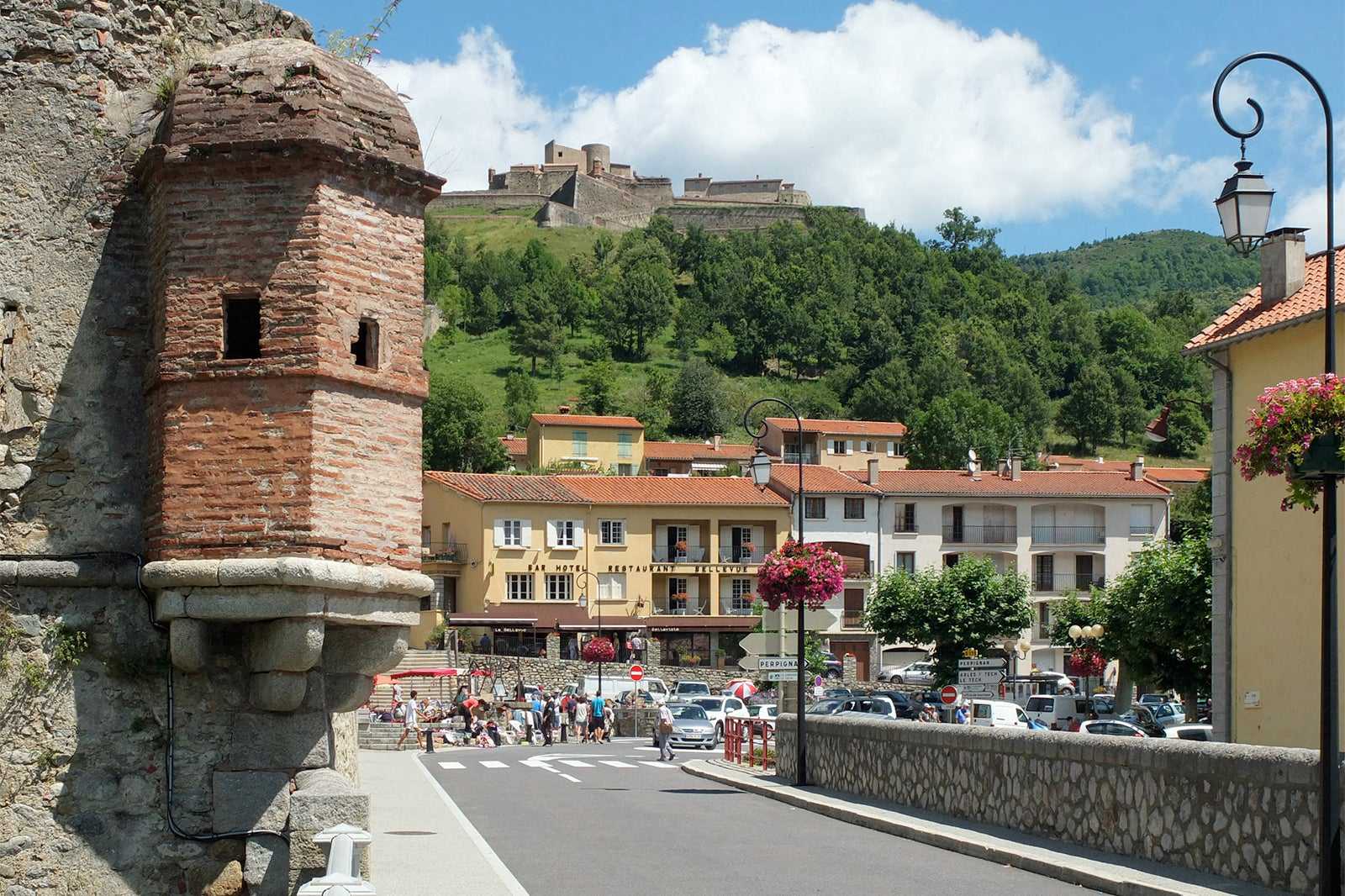
- Histoire
- Luxe
- Photographie
Prats-de-Mollo-la-Preste and its cobbled streets and fortified church have stood proud 735 metres above sea level for more than a thousand years. If you are interested in the story of Vauban, it's easy to see his influence on this medieval town. Here the past is present in the fortified gates, the baroque Saintes-Juste-et-Ruffine church or the covered path that leads to the 17th-century Fort Lagarde.
If you visit in February, you may be lucky enough to see the bear festival (fête de l'ours), a traditional Pyrenean celebration that marks humanity's rite of passage from savage to civilised. If you have some time to spare, you can relax in the thermal baths of Thermes de La Preste-les-Bains, only 8 km away.
Cartephoto de Palauenc05 (CC BY-SA 4.0) modifiée
- 8
Villefranche-de-Conflent
A fortified town in the Pyrénées-Orientales
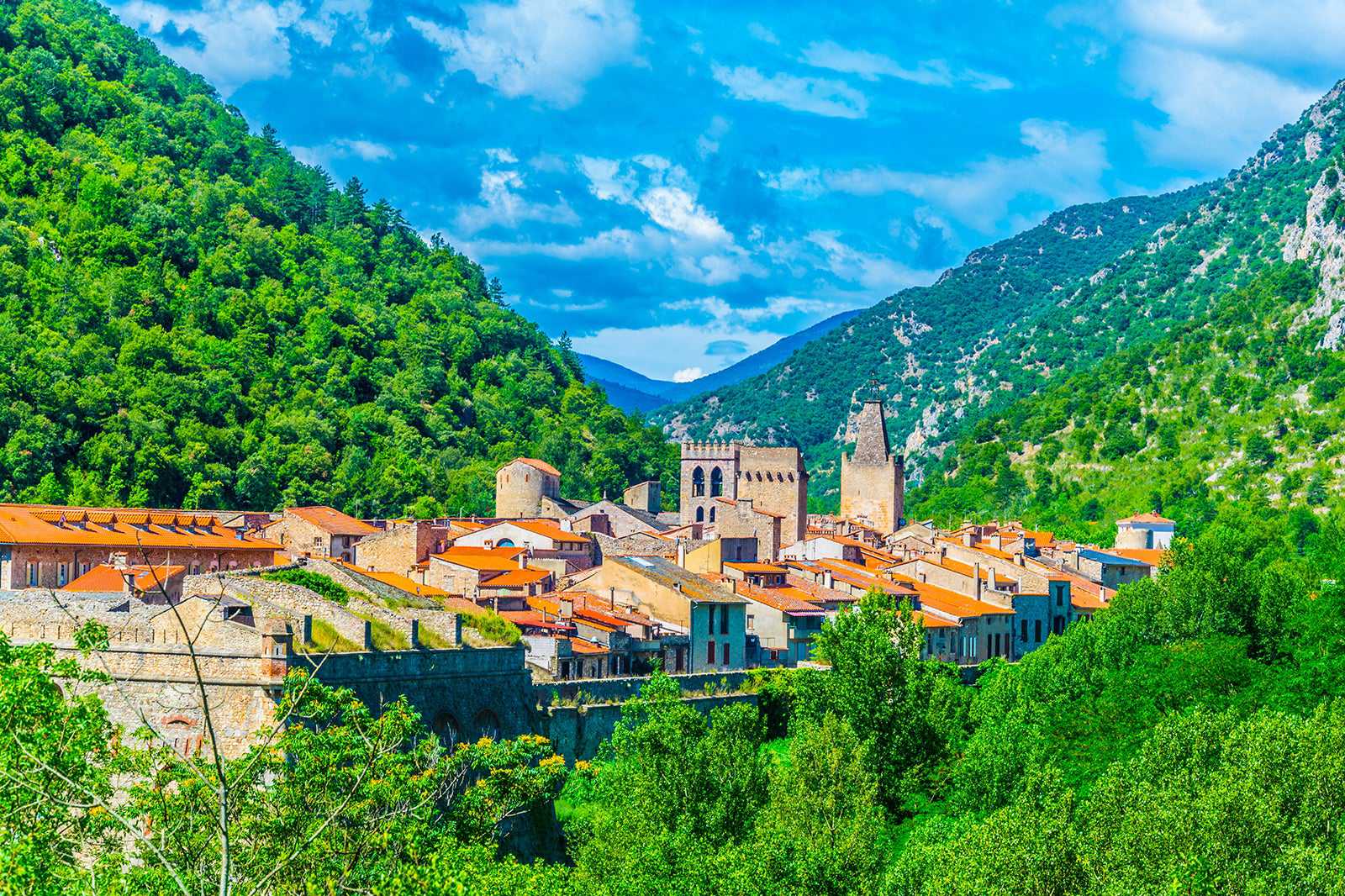
- Familles
- Histoire
- Photographie
Villefranche-de-Conflent, founded in 1092 at the foot of the Canigou mountains and later fortified by Vauban, is encircled by massive fortifications. This town, where 3 valleys meet, has a long history. You’ll love the fortified gates, picturesque lanes, a bridge over the River Têt, the town hall belfry and the beautiful door of the Church of St. James.
You'll especially enjoy Fort Libéria, built by Vauban in 1681 and strengthened by Napoleon III, as it stands guarding over the town. If you're sporty, take the 1,000-step staircase to the top, or use a 4x4 if you're in a hurry. And don't forget to take a trip on Villefranche-de-Conflent's Yellow Train.
Carte - 9
La Roque-sur-Cèze
A charming wine-making village by the side of a river
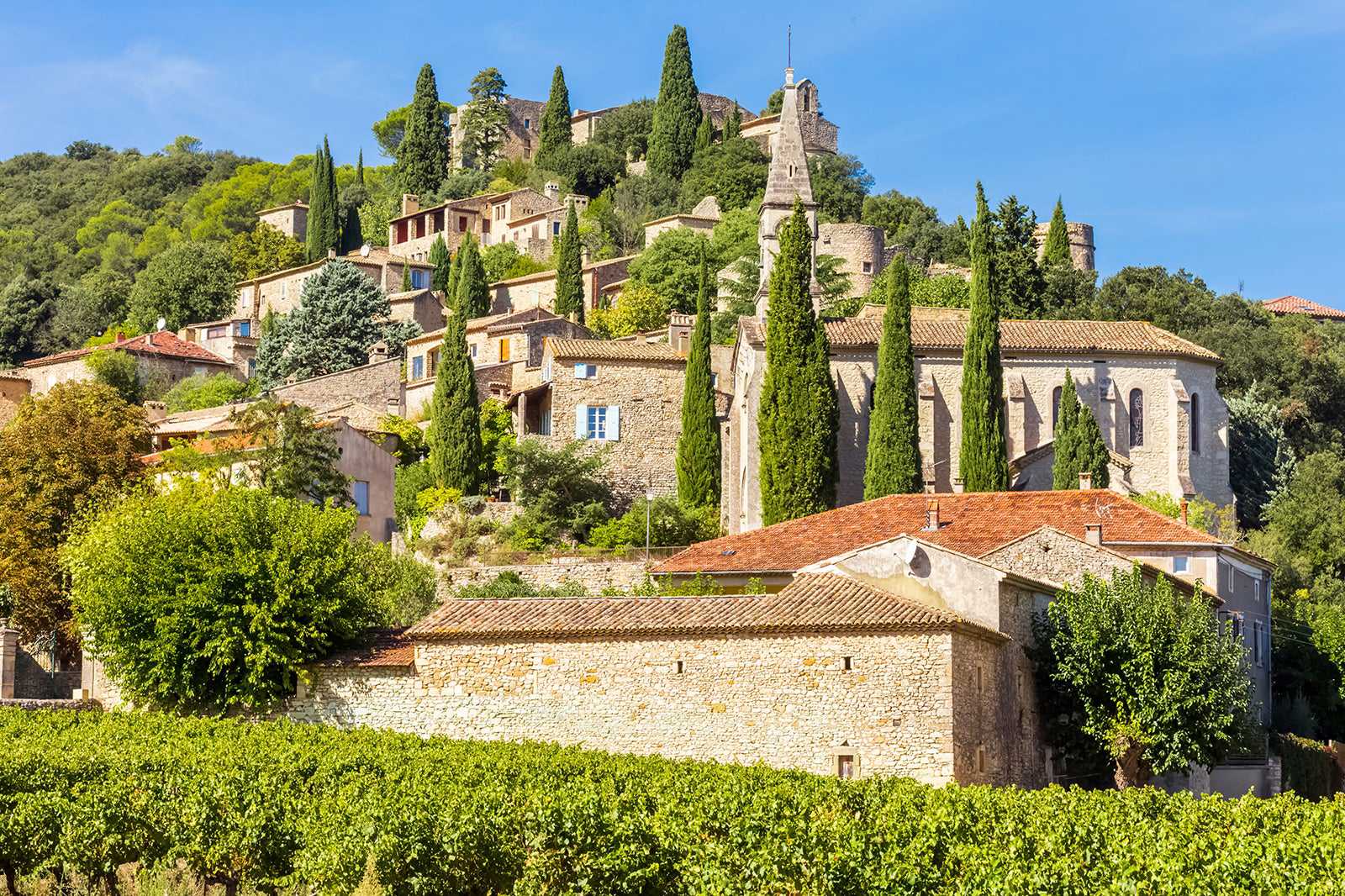
- Économique
- Photographie
- Insolite
La-Roque-sur-Cèze is a beautiful and architecturally harmonious medieval village set in the heart of Gard Provence. You'll need to park on the banks of the River Cèze and then continue on foot because no cars are allowed in the village.
Strolling down the cobbled street and looking over the vineyards, you can see the remains of the castle that the town was built around, but also the arches of the 13th century bridge, the stone houses and a Romanesque chapel. Just a stone's throw from this peaceful village are the giant's footprints at the Sautadet falls (cascades du Sautadet).
Carte - 10
Castelnou
A jewel of Catalonia
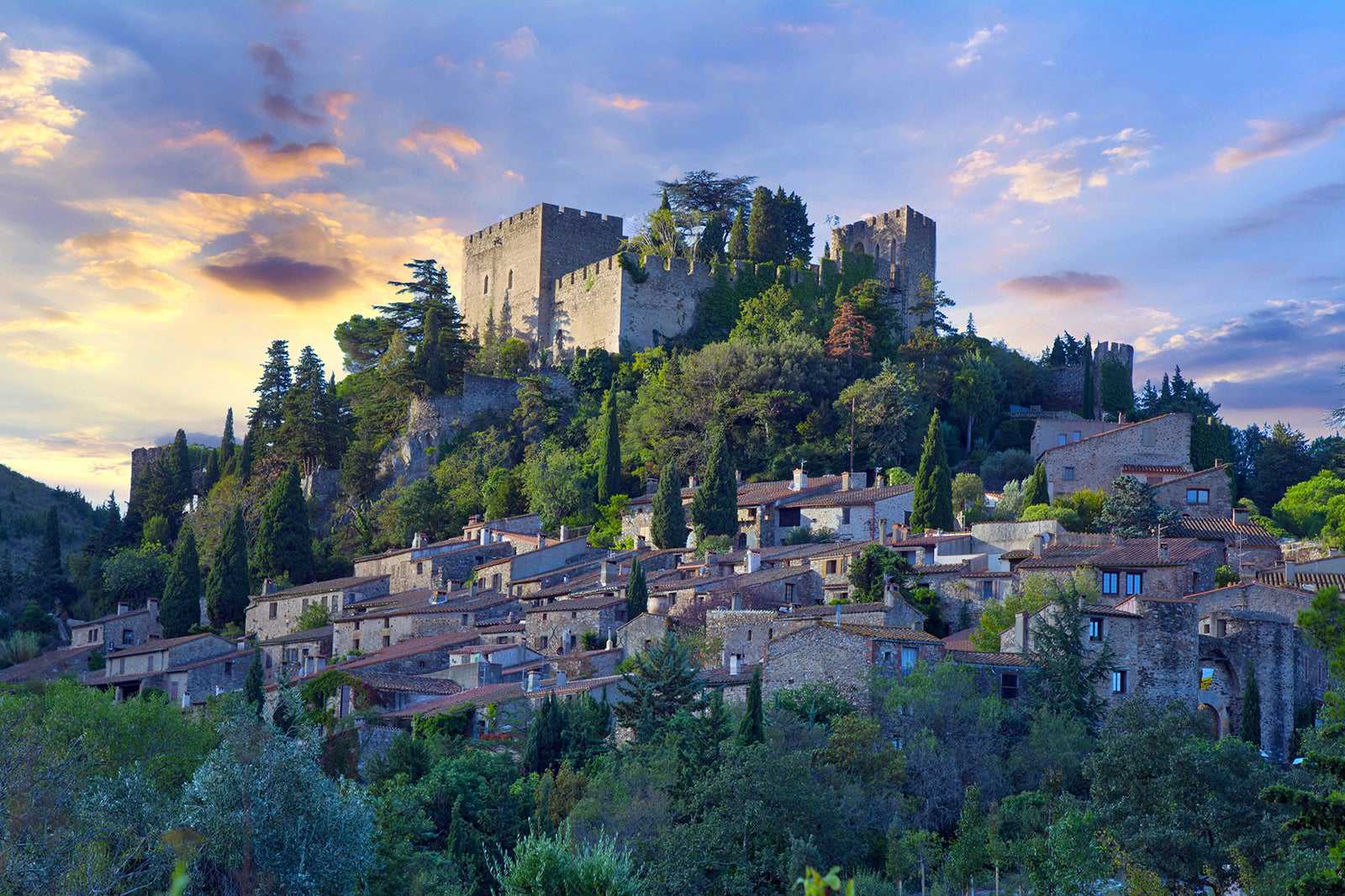
- Couples
- Familles
- Photographie
Castelnou and its castle have stood stolidly below the Canigou mountain for more than 10 centuries making it a must-see village in the Pyrénées-Orientales. The remains of the ramparts are there to remind you that Castelnou, capital of Vallespir, was once a very strategic town, much desired by various lords and often besieged.
But now when you go through its monumental gate the most striking thing about the village is how harmonious the buildings are. Below the 10th century castle and baroque church of St Mary of Mercadel (Sainte-Marie du Mercadel) along narrow stone streets full of flowers, the stone buildings house lots of enchanting little shops featuring local artisans.
Carte
